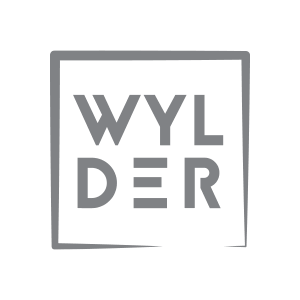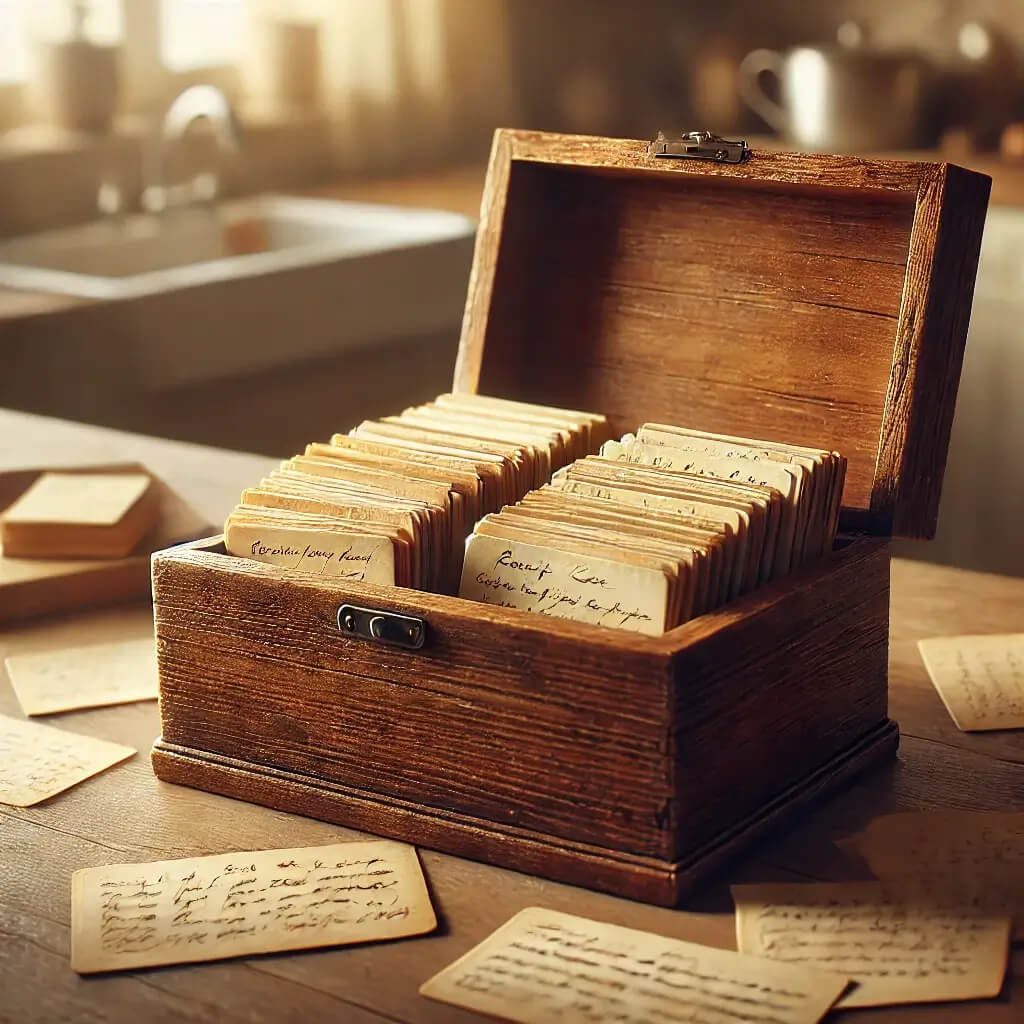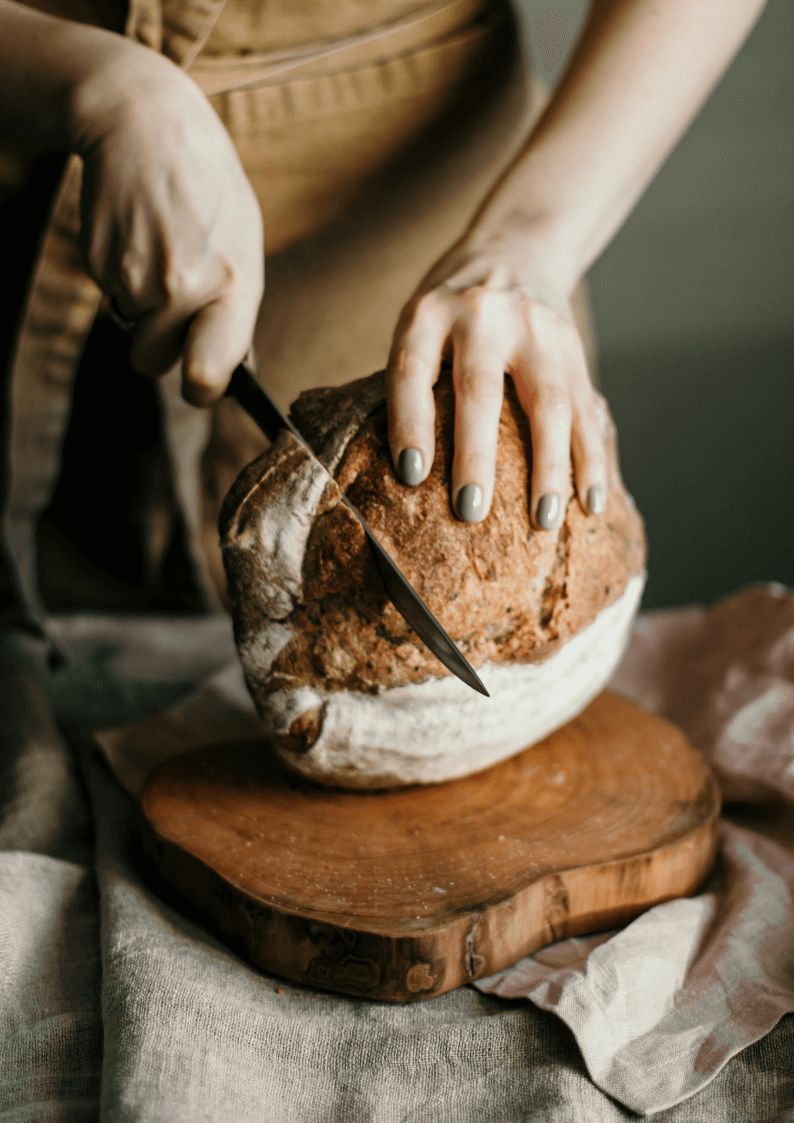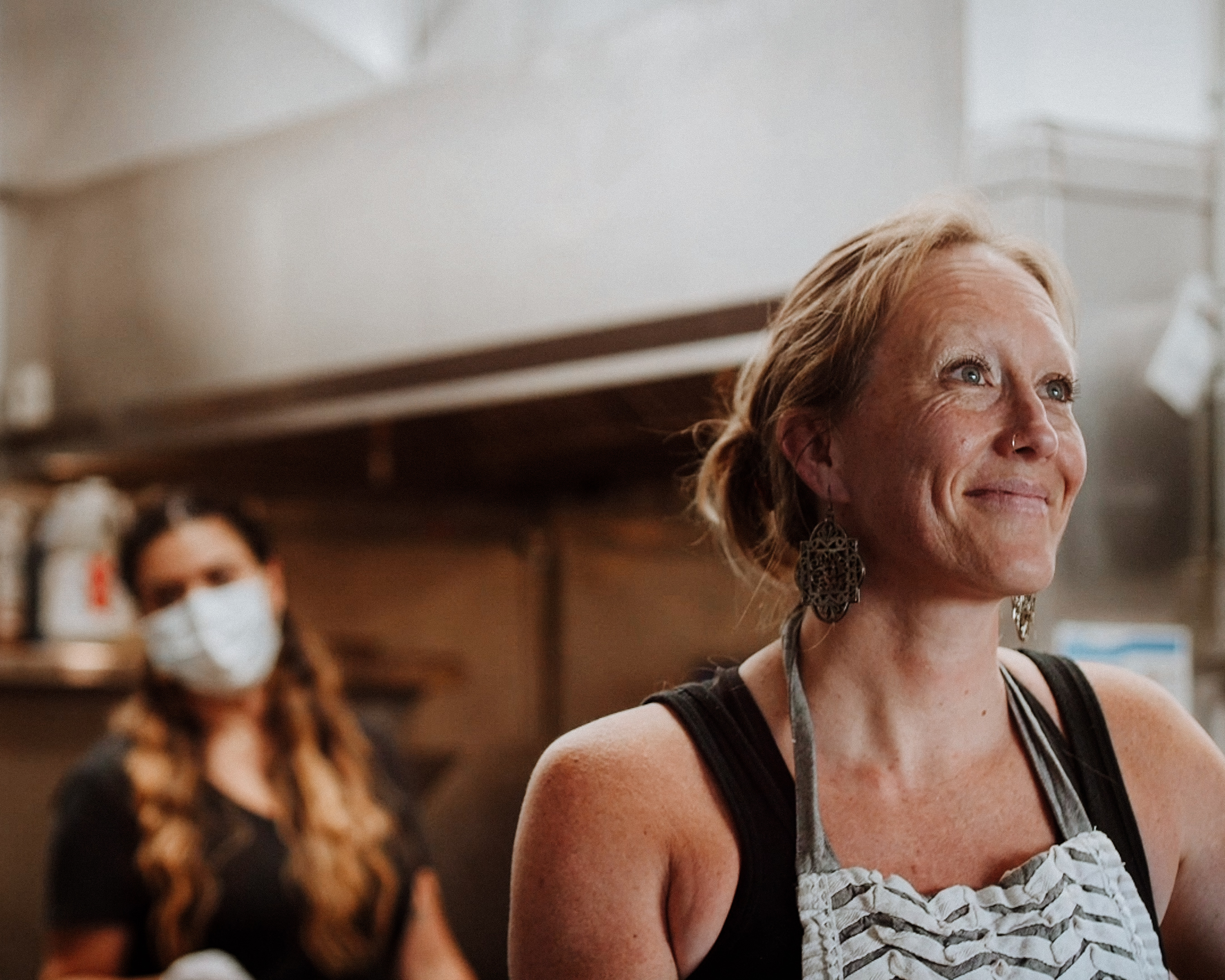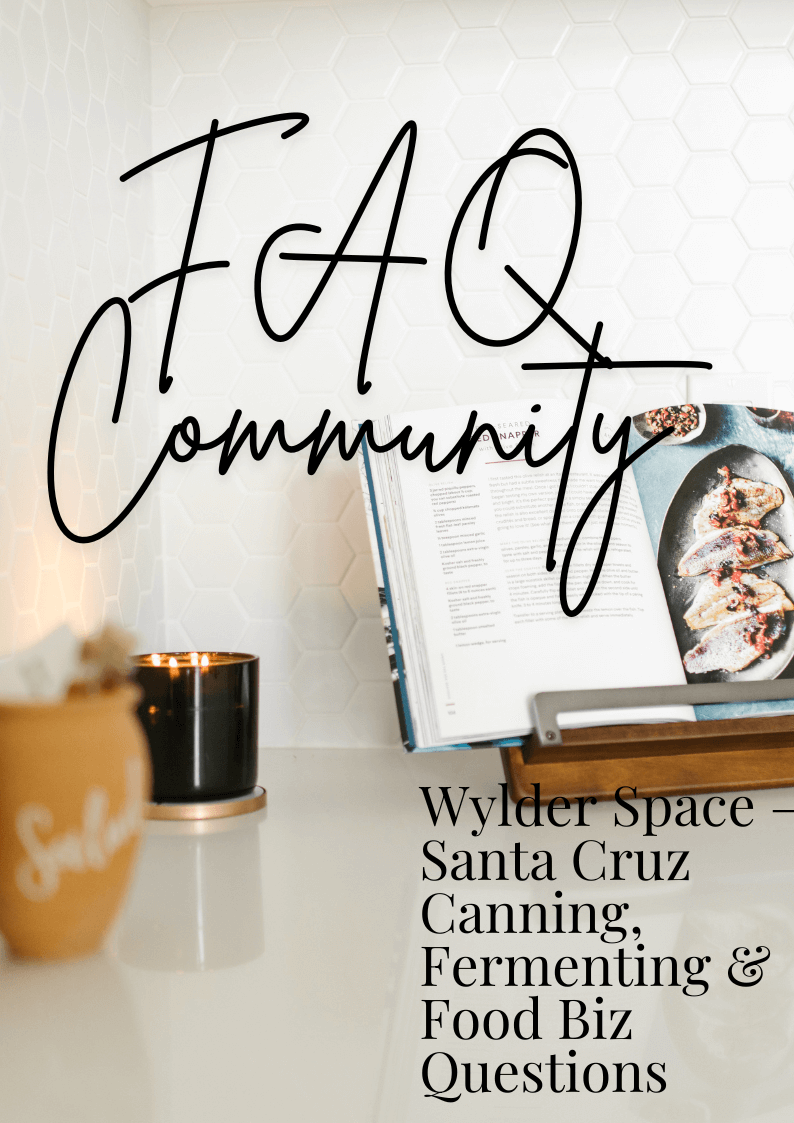
What can I preserve first?
- Start with high‑acid foods: jams, jellies, pickles, salsas
- Use water‑bath canning—minimal tools & beginner‑safe
- Check out our Sacred Kitchen Starter Kit that offers step-by-step guidance
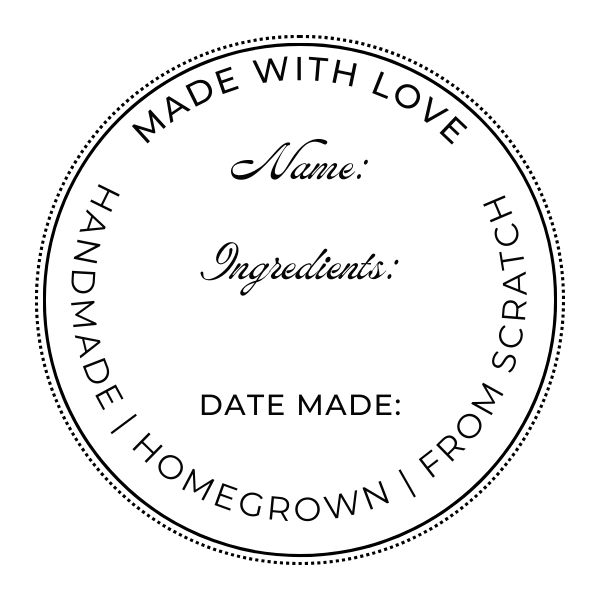
How do I start fermenting at home?
- Pick veggies like cabbage (for sauerkraut) or cucumbers
- Submerge them in a simple brine and wait
- Covered at room temp—days to weeks, based on taste
- Learn this in Week 2 of Nourishing Traditions
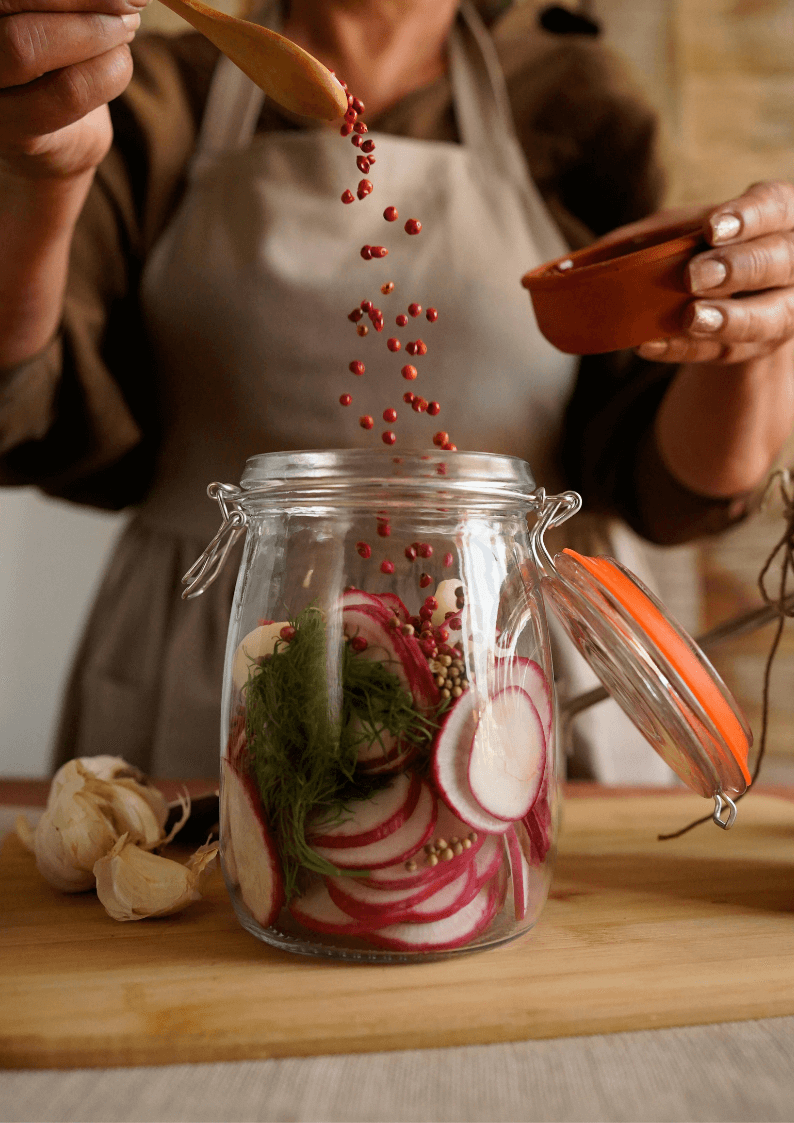
Pasteurized vs. raw dairy—what’s the difference?
- Pasteurized: heat-treated—kills bacteria and enzymes
- Raw dairy: unheated—retains enzymes, probiotics, nutrients
- Plus, learn yogurt, kefir & cream cheese in our course
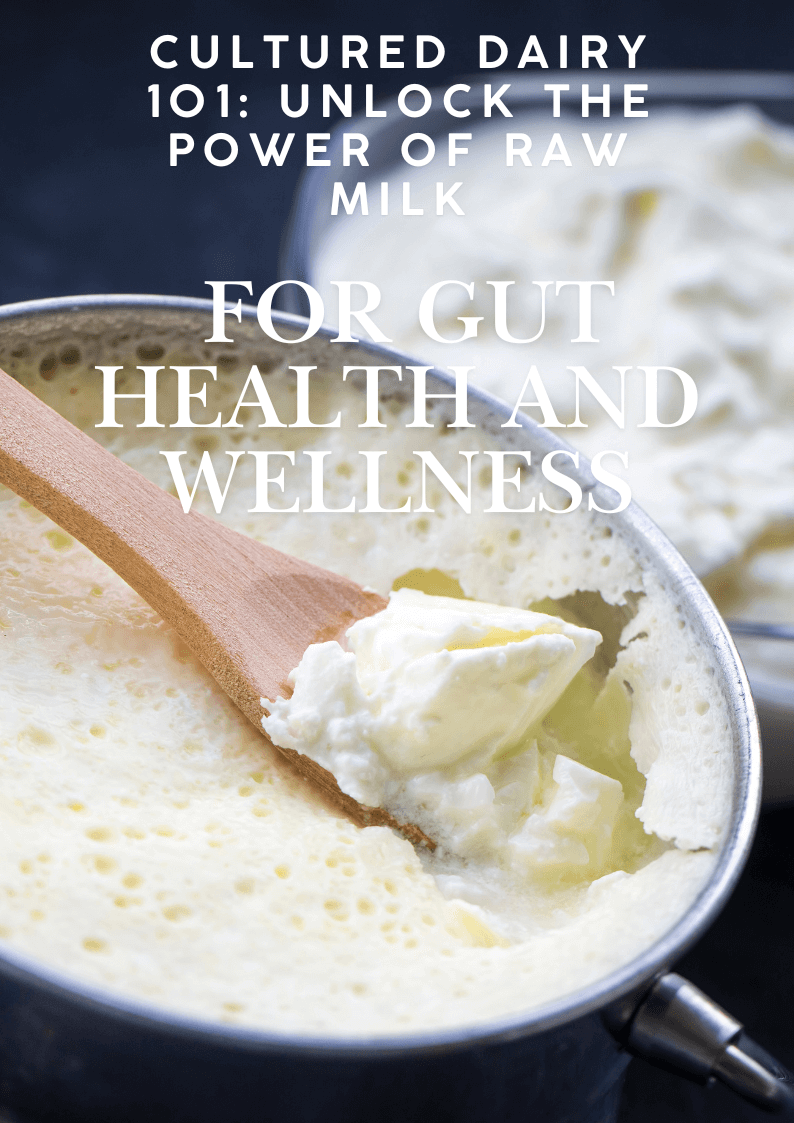
What’s the easiest way to start canning?
- Pick small-batch, high-acid recipes (jams, pickles)
- Use a water-bath canner for safety and simplicity
- Always follow USDA-tested recipes (or ours)
How do I involve my kids?
- Let them do age-appropriate tasks: washing, mixing, sprinkling
- Make cooking playful—use themes & storytelling
- Our Back to Basics course includes kid-focused recipes & projects
Can this help build my own food business?
- Yes—focus on your strengths, test offerings, create a plan
- Use pop‑ups or workshops to start small
- Automate and delegate to sustain lifestyle balance
- Find tips for food entrepreneurs at Wylder Space
What makes Wylder Space unique?
- Comprehensive: canning, fermenting, soaking, sprouting tutorials
- Community‑focused: supportive sisterhood on the same path
- Real-life application: skills you can use daily
Ready to dive into the Real Food Movement and transform your kitchen?
Welcome to Wylder Space
You’ve been holding your family together. Now it’s time to hold space for yourself.
What if your kitchen wasn’t just where meals get made —
but where your inspiration is born,
your soul lights up,
and your whole life shifts?
but where your inspiration is born,
your soul lights up,
and your whole life shifts?
At Wylder Space, we’re not chasing perfect.
We’re choosing presence.
We’re building a slower, steadier, sacred kind of life — from the inside out.
We’re choosing presence.
We’re building a slower, steadier, sacred kind of life — from the inside out.
Not with expensive land or picture-perfect routines.
But with one jar at a time.
But with one jar at a time.
What You’ll Find Here
- Canning that starts with what’s in your pantry — not on Pinterest
- Simple, nourishing meals your kids will actually eat (even on loud days)
- Rhythms that work in small spaces with small people underfoot
- A real community — not just a comment section
- Gentle ways to earn from home without losing your peace
This isn’t a lifestyle brand.
This is a way back to yourself.
This is a way back to yourself.
Maybe You’ve Thought:
“I want to feed my family better… but I’m drowning in Cheerios and to-do lists.”
“I wish I could make money without leaving my kids behind.”
“I don’t need more content — I need direction.”
Me too.
I’ve been the mom whispering “not now” while handing my son a bag of chips.
I’ve stayed up Googling “how to live off one income” while crying quietly into a glass of wine.
I’ve lit candles over cold leftovers, praying for a life that felt like mine again.
I’ve stayed up Googling “how to live off one income” while crying quietly into a glass of wine.
I’ve lit candles over cold leftovers, praying for a life that felt like mine again.
And it started, for me, with one jar.
One batch of broth.
One rhythm that made me feel human again.
One batch of broth.
One rhythm that made me feel human again.
If you’re ready for less hustle and more holy…
If you’re longing for a kitchen that feels like a sanctuary…
If you’re craving a way to live that doesn’t cost your motherhood…
If you’re craving a way to live that doesn’t cost your motherhood…
You're in the right place.
Come pull up a chair.
There’s soup on the stove,
a way forward is waiting for you,
and a sisterhood of women who aren’t doing it perfectly —
but they’re doing it on purpose.
There’s soup on the stove,
a way forward is waiting for you,
and a sisterhood of women who aren’t doing it perfectly —
but they’re doing it on purpose.
→ Start Here with our $10 Canning Class
You can reclaim your way of life with new skills.
You can reclaim your way of life with new skills.
